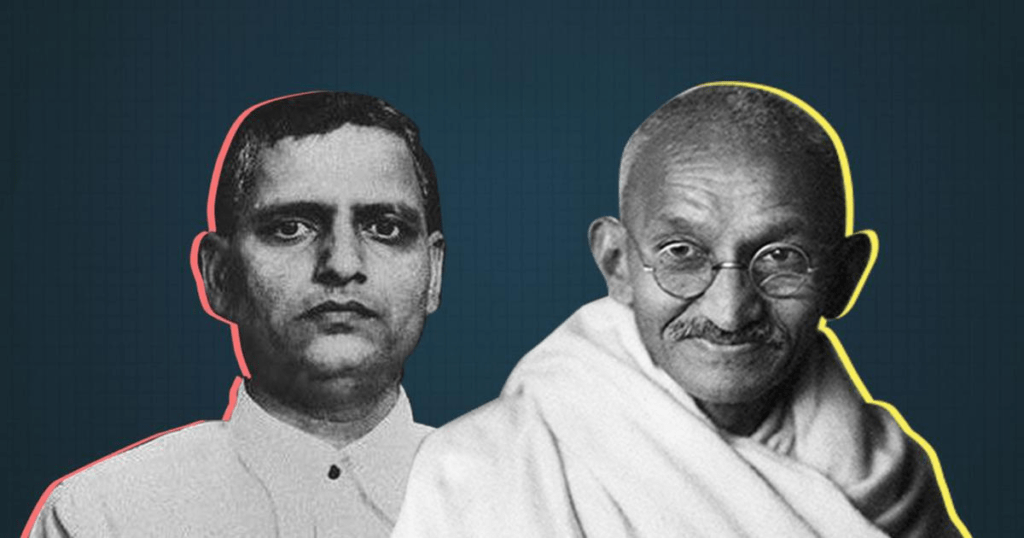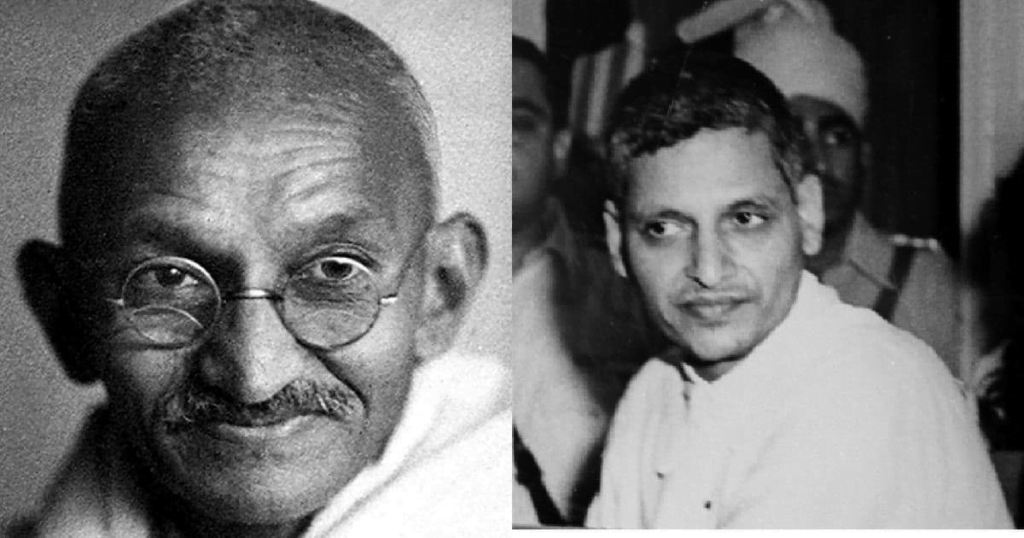Mahatma Gandhi and Nathuram Godse represent two vastly different ideologies in Indian history. Gandhi is widely considered a champion of non-violence and peace, while Godse is known for his extremist views and the assassination of Gandhi. In this article, we will take a closer look at the contrasting ideologies of these two individuals and their impact on Indian history.
Mahatma Gandhi was born in 1869 in Porbandar, a coastal town in present-day Gujarat, India. He was a political and spiritual leader who fought for India’s independence from British rule through non-violent means. Gandhi’s philosophy of non-violence was deeply rooted in his Hindu faith and the belief that all life is sacred. He believed that violence only begets more violence, and that true change can only be achieved through peaceful means.
Throughout his life, Gandhi led several nonviolent campaigns, including the Salt March of 1930 and the Quit India Movement of 1942. He became an international symbol of nonviolent resistance and a moral leader for oppressed people worldwide. His teachings and philosophy have had a lasting impact on the world, inspiring other leaders and activists to fight for justice and equality through non-violent means.
In contrast, Nathuram Godse was a Hindu nationalist who believed in the superiority of Hindu culture and the need to establish a Hindu Rashtra or Hindu nation. He was born in 1910 in the present-day state of Maharashtra, India, and became involved in extremist politics at a young age. Godse was a member of the Hindu nationalist organization Rashtriya Swayamsevak Sangh (RSS) and believed that India’s independence from British rule was not complete until Hindus were in control of the country.
Godse’s extremist views ultimately led him to assassinate Gandhi on January 30, 1948. He believed that Gandhi’s policies of appeasement towards Muslims and other minority groups were a threat to the Hindu nation and that violence was necessary to protect Hindu interests. Godse was tried and convicted for Gandhi’s murder and was hanged on November 15, 1949.

The contrasting ideologies of Gandhi and Godse continue to shape Indian society and politics today. Gandhi’s philosophy of non-violence and peaceful resistance has inspired countless activists and leaders around the world, while Godse’s extremist views and actions have been widely condemned.
In conclusion, Gandhi and Godse represent two vastly different ideologies in Indian history. Gandhi’s philosophy of non-violence and peaceful resistance has had a lasting impact on the world. At the same time, Godse’s extremist views and actions continue to be a source of controversy and division in India. The study of these two individuals provides important lessons about the power of non-violence and the dangers of extremism. It is important for us to remember Gandhi’s legacy of peace and non-violence and to reject the divisive and harmful ideologies represented by figures like Nathuram Godse.


